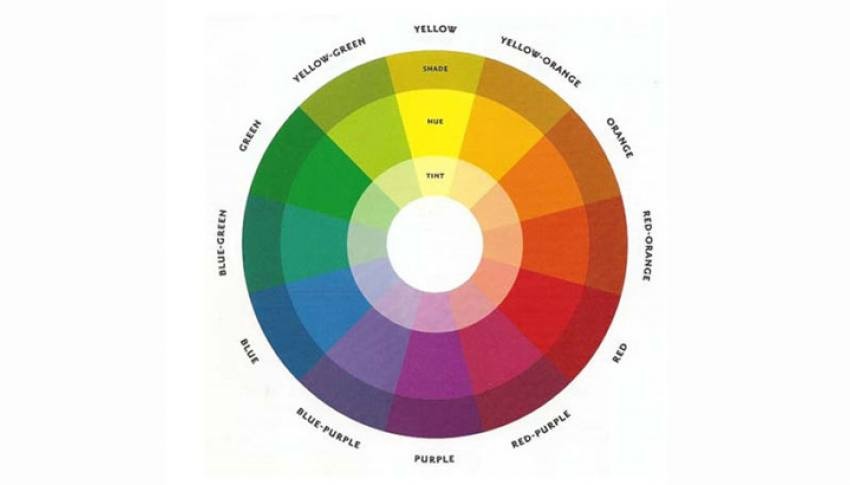Meaning of the Color Blue
Blue is the overwhelming "favorite color." Blue is seen as trustworthy, dependable and committed. The color of the sky and the ocean, blue is perceived as a constant in our lives. As the collective color of the spirit, it invokes rest and can cause the body to produce chemicals that are calming; however not all blues are serene and sedate. Electric or brilliant blues become dynamic and dramatic, an engaging color that expresses exhilaration. Some shades or the overuse of blue may come across as cold or uncaring. Blue is the least "gender specific" color, having equal appeal to both men and women.
How the color blue effects us physically and mentally:
- Calming and sedate
- Cooling
- Aids intuition
Meaning of the Color Green
Green occupies more space in the spectrum visible to the human eye and is second only to blue as a favorite color. Green is the pervasive color in the natural world that is an ideal backdrop in interior design because we are so used to seeing it everywhere. The natural greens, from forest to lime, are seen as tranquil and refreshing, with a natural balance of cool and warm (blue and yellow) undertones. Green is considered the color of peace and ecology. However, there is an "institutional" side to green, associated with illness or Government-issued that conjure up negative emotions as do the "slimy" or bilious greens.
How the color green affects us physically and mentally:
- Soothing
- Relaxing mentally as well as physically
- Helps alleviate depression, nervousness, and anxiety
- Offers a sense of renewal, self-control, and harmony
Meaning of the Color Yellow
Yellow shines with optimism, enlightenment, and happiness. Shades of golden yellow carry the promise of a positive future. Yellow will advance from surrounding colors and instill optimism and energy as well as spark creative thoughts.
How the color yellow effects us mentally and physically:
- Mentally stimulating
- Stimulates the nervous system
- Activates memory
- Encourages communication
Meaning of the Color Orange
Orange, a close relative of red, sparks more controversy than any other hue. There is usually strong positive or negative association to orange and true orange generally elicits a stronger "love it" or "hate it" response than other colors. Fun and flamboyant orange radiates warmth and energy. Interestingly, some of the tones of orange such as terra cotta, peach or rust have very broad appeal.
How the color orange effects us mentally and physically:
- Stimulates activity
- Stimulates appetite
- Encourages socialization
Meaning of the Color Red
Red has more personal associations than any other color. Recognized as a stimulant red is inherently exciting and the amount of red is directly related to the level of energy perceived. Red draws attention and a keen use of red as an accent can immediately focus attention on a particular element.
How the color red effects us mentally and physically:
- Increases enthusiasm
- Stimulates energy
- Encourages action and confidence
- A sense of protection from fears and anxiety
Meaning of the Color Purple
Purple embodies the balance of red simulation and blue calm. This dichotomy can cause unrest or uneasiness unless the undertone is clearly defined at which point the purple takes on the characteristics of its undertone. A sense of mystic and royal qualities, purple is a color often well liked by very creative or eccentric types and is the favorite color of adolescent girls.
How the color purple effects us mentally and physically:
- Uplifting
- Calming to mind and nerves
- Offers a sense of spirituality
- Encourages creativity
Meaning of the Color Brown
Brown says stability, reliability, and approachability. It is the color of our earth and is associated with all things natural or organic.
How the color brown effects us physically and mentally:
- Feeling of wholesomeness
- Stability
- Connection with the earth
- Offers a sense orderliness
Meaning of the Color White
White projects purity, cleanliness, and neutrality. Doctors don white coats, brides traditionally were white gowns and a white picket fence surrounds a safe and happy home.
How the color white effects us mentally and physically:
- Aids mental clarity
- Encourages us to clear clutter or obstacles
- Evokes purification of thoughts or actions
- Enables fresh beginnings
Meaning of the Color Gray
Gray is timeless, practical, and solid. A longstanding favorite suit color, gray can mix well with any color. Although well like and often worn, people rarely name gray as a favorite color possibly because Gray also is associated with loss or depression.
How the color gray effects us physically and mentally:
Meaning of the Color Black
Black is authoritative and powerful; because black can evoke strong emotions too much can be overwhelming. A classic color for clothing possibly because it makes the wearer appear thinner and more sophisticated.
How the color black effects us physically and mentally:
- Feeling inconspicious
- A restful emptiness
- Mysterious evoking a sense of potential and possibility



